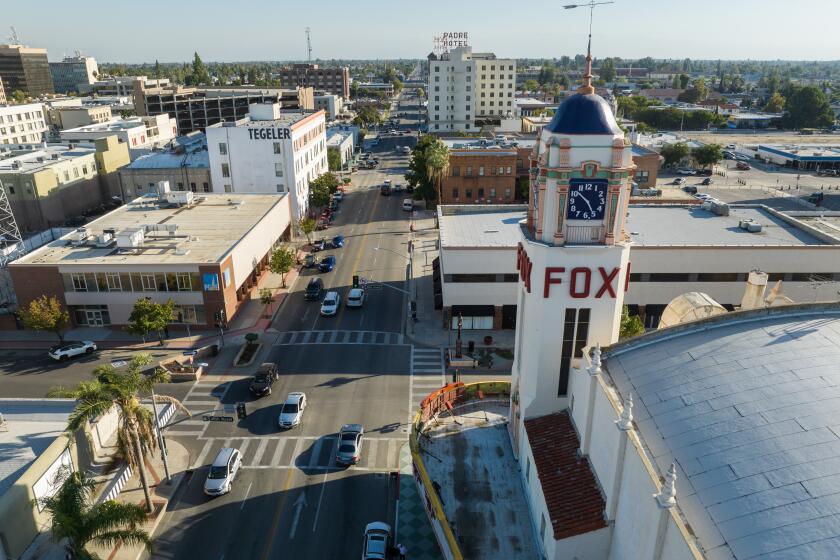Chat & Selfie: On giant puppets, injustice and kimchi
Under the terrifying gaze of giant puppets, Alexandra Suh, executive director of the Koreatown Immigrant Workers Alliance, sat in the organization’s offices with the California section’s Victoria Kim and discussed the neighborhood, injustice and kimchi. We later emailed her questions and crunched the conversation into this:
You used to live in Manhattan — what could NYC learn from Koreatown and vice versa?
In the city there is always a park in walking distance where you can walk, talk, read, eat your lunch, people-watch. Where can you do that in K-town without paying? What Manhattan could learn from K-town: Food and drinks can be both really good and affordable.
What’s your organization’s most important victory and defeat?
KIWA is on the Steering Committee of the Raise the Wage campaign, which last month raised our minimum wage to $15 by 2020 (2021 for small businesses) and established our city’s first enforcement bureau. The biggest challenge is holding onto what we win as we move onto new challenges. Years ago, we won living-wage agreements in K-town markets and better conditions at many restaurants, but we know some places have slid backwards.
You have a Ph.D. in comparative literature. Name a few characters you’ve met in L.A. and the roles they might play in novels?
One night, coming out of a restaurant on 8th Street, my family found a halmoni (grandmother) sitting on a blanket on the sidewalk, selling small, very inexpensive stuffed animals — little crabs, birds. I thought about what must be her circumstances to be spending nights alone selling those toys for a couple dollars. We let our kids buy two animals and she insisted on giving them three more, refusing payment in that furious Korean manner. The novel would take us through her life via her memories — sometimes wisps, sometimes towering waves overwhelming the present. We would get a sense of the history our elders carry in their bent spines, their sinews, the light in their eyes.
What would the plot line be in a novel featuring your work as a labor organizer? Comedy or tragedy?
Both, definitely. I don’t know about the plot line, but in my novel, my toolbox of tactics against corrupt execs would prominently feature the kimchi slap.
Your membership is primarily Korean and Latino. Kimchi or habaneros?
I heard that the red pepper originally came to Asia from this continent — and before that all kimchi was the plain cabbage kimchi. Whether that’s true or not, we all love it. The red pepper unites us.
Korean business owners and Latino workers — is that a tinder box?
It all depends, but not on race. It is not about a worker’s or employer’s ethnicity, nationality, or race — it’s about respect and fairness. If an employer does not discriminate and respects labor laws, no embers, no tinder box.
What will, or should, Koreatown look like by the time your kids are grown up?
People who want to stay are able to stay. Jobs with dignity and respect. Parks and organic gardens everywhere. Enough beautiful and affordable housing. Kids and elders and everyone everywhere. And way fewer cars.
Young, well-heeled non-Koreans appear to have discovered K-town. Is Psy of “Gangnam Style” to blame, or is there something more going on?
Psy is only one messenger. Resistance is futile. To know us is to love us and all are welcome.
What’s with the giant puppets at your protests?
KIWA’s nondiscrimination policy extends to the extremely tall — and giant puppets want justice too. Why wouldn’t we include them at our actions?
More to Read
Start your day right
Sign up for Essential California for news, features and recommendations from the L.A. Times and beyond in your inbox six days a week.
You may occasionally receive promotional content from the Los Angeles Times.






